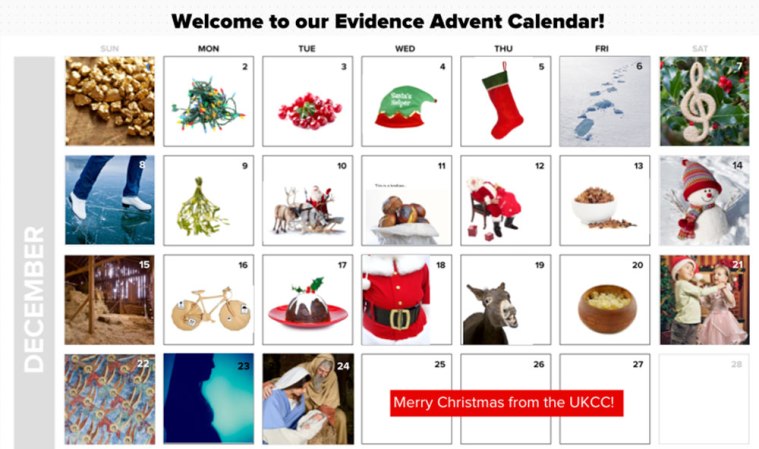Music has the potential to make everything better, doesn’t it? Arguably, this is so in any and all situations. In difficult circumstances, it can help us endure. Music can take the edge off the pain, in both body and mind. No wonder there is a keen interest in exploring its potential to help us in various healthcare settings and this has been the subject of many Cochrane reviews. Continue reading
Tag Archives: cancer
Lessons in disappointment and some New Year’s resolutions
Broken your New Year’s resolutions yet? Research from the US suggests just 8% of people achieve theirs and we know that if you’re hanging onto them into February you’re doing really well. When I thought about making a list of resolutions which clinical trialists and systematic reviewers might like to follow (the cheek of it!), it looked like a welcome distraction from deciding I’m going to take up running (again), eat only healthy snacks and get 10 hours sleep a night. But I find I am coming to this with a rising sense of sadness, disappointment and, well, outrage about some of the evidence gaps. Gaps which leave people struggling with health problems, and those trying to help them, without clear guidance on which interventions might help; and, indeed, on which may make things worse. Continue reading
An evidence advent calendar!
It turns out that Cochrane’s for Christmas, not just for life, with evidence in the Cochrane Library on all manner of festive things from gold, frankincense and myrrh to stockings! Ok, some of the links are a bit tenuous, but we hope you’ll enjoy our advent calendar.
Owing to some trouble with the technology elves, we couldn’t make it interactive (boo!) but each day we’ll post some Cochrane evidence related to the day’s picture, below the calendar. If you think of any others, do share them via the comments box.

Take a look: better diagnosis in pancreatic cancer
Key message: When CT scan shows a pancreatic or periampullary cancer that looks like it can be removed by surgery, having diagnostic laparoscopy may decrease the rate of unnecessary surgery by giving more information about whether this is likely to be so.
Pancreatic Cancer Awareness Month is drawing to a close. It’s been an opportunity for Pancreatic Cancer Action to raise awareness of a disease which is the fifth leading cause of cancer death here in the UK, where survival rates are among the worst in Europe and have not changed in over 40 years. The good news is that a new Cochrane review from the Cochrane Upper Gastrointestinal and Pancreatic Diseases (UGPD) Group has just been published with evidence that a diagnostic technique, laparoscopy, may help to reduce the number of people undergoing surgery unnecessarily. Continue reading
Interferon improves survival after surgery for melanoma
Key message: interferon alpha improves both disease-free survival and overall survival of people with high-risk cutaneous melanoma. Interferon is also valid as a reference standard for future trials of other new treatments.
Cutaneous melanoma is a type of skin cancer that’s on the rise in all Western countries and carries with it a poor chance of survival for those in whom the cancer has spread, with around 10% surviving longer than five years. For those whose cancer has not spread, their outlook after surgery is variable; between 40% and 90% are alive after five years. Interferon alpha is the only drug approved for adjuvant (additional) treatment of high-risk cutaneous melanoma after surgery, but not enough has been known about its benefits for it to be offered as a standard treatment. Continue reading
The benefits of exercise during and after cancer treatment: new Cochrane evidence
| Key message:Aerobic exercise may help reduce cancer-related fatigue during and after treatment for solid tumours. |
“Exercise is good for you” is a familiar mantra and now there is evidence that aerobic exercise, such as walking or cycling, may help relieve the tiredness experienced by people having treatment for cancer, particularly solid tumours. A Cochrane review published in 2008 has now been updated, with 28 additional randomized controlled trials (RCTs) bringing the total to 56 RCTs with over 4000 people. Half the trials involved people with breast cancer. Exercise interventions varied between studies. Continue reading
